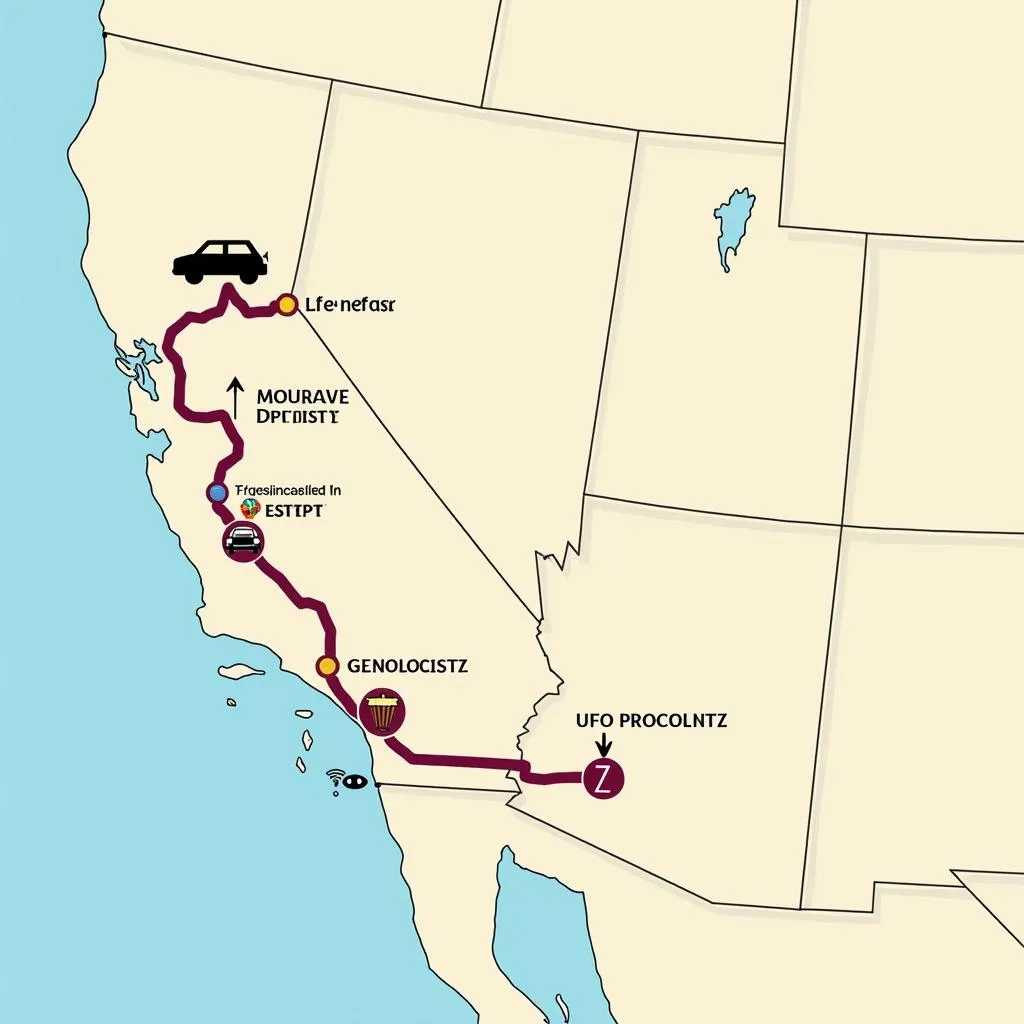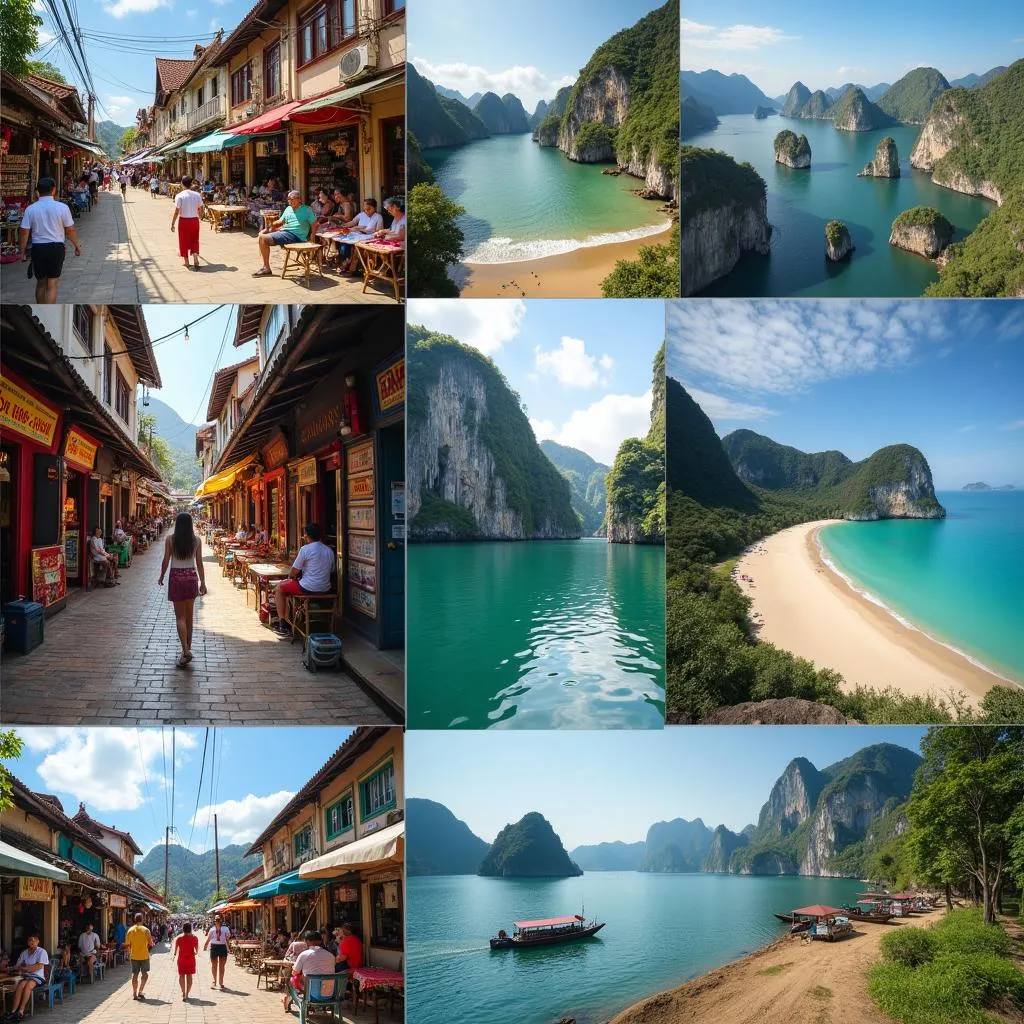The ability to vividly describe an unusual event, holiday, or trip is a crucial skill for the IELTS Speaking test. This topic frequently appears in various forms across all parts of the speaking exam, particularly in Part 2. By preparing well for this subject, you can significantly boost your chances of achieving a high band score.
Nội dung bài viết
Part 1: Introduction and Interview
In Part 1, the examiner may ask some general questions related to unusual experiences or trips. Here are some common questions you might encounter:
- Do you enjoy trying new experiences?
- Have you ever had an unexpected adventure?
- What’s the most unusual place you’ve visited?
Let’s look at a sample answer for the first question:
Examiner: Do you enjoy trying new experiences?
Sample answer (Band 7-8):
“Absolutely! I’m quite adventurous by nature and I thrive on trying new things. Whether it’s sampling exotic cuisines or embarking on spontaneous road trips, I find that stepping out of my comfort zone often leads to the most memorable experiences. It’s not just about the thrill, though. I believe that exposing myself to novel situations helps me grow as a person and broadens my perspective on life.”
Describe a memorable holiday you took with your family
Part 2: Long Turn
Here’s a sample cue card related to the topic:
Describe an unusual event, holiday, or trip you experienced
You should say:
- What the event/holiday/trip was
- When and where it happened
- Who you were with
- Why it was unusual
- And explain how you felt about this experience
Sample answer (Band 8-9):
“I’d like to talk about an extraordinary adventure I had last summer when I went on a spontaneous road trip across the Southwestern United States. It was particularly unusual because it was entirely unplanned and took an unexpected turn.
The trip began on a whim in late July. I was with my closest friend, Sarah, and we had initially intended to spend a weekend in Las Vegas. However, upon arriving there, we felt an irresistible urge to explore further. We decided on the spur of the moment to rent a car and see where the road would take us.
What made this trip truly remarkable was a series of serendipitous encounters and unforeseen circumstances. On our second day, our car broke down in the middle of the Mojave Desert. While waiting for assistance, we met a group of geologists studying the area’s unique rock formations. They were so passionate about their work that they invited us to join their expedition for a day. This unexpected detour turned into a fascinating crash course in geology and desert ecosystems.
Later in the trip, we found ourselves in a small town in Arizona during their annual UFO festival. The entire town was decked out in alien-themed decorations, and locals shared their stories of alleged extraterrestrial encounters. It was surreal and unlike anything I had ever experienced before.
The unpredictability of the journey made it exceptionally unusual. We had no fixed itinerary, no hotel bookings, and often relied on the kindness of strangers for recommendations and sometimes even accommodation. This spontaneity led us to hidden gems and experiences that we would never have discovered on a planned trip.
Looking back, I feel an overwhelming sense of exhilaration when I think about this trip. It taught me the value of embracing uncertainty and being open to whatever comes my way. The unexpected twists and turns made every moment thrilling, and the people we met along the way enriched our journey immeasurably. This experience reinforced my belief that sometimes the best adventures are the ones you don’t plan for, and it has inspired me to approach life with more flexibility and openness to the unknown.”
 Unusual road trip across Southwestern United States
Unusual road trip across Southwestern United States
Examiner: That sounds like quite an adventure. How do you think this experience changed your approach to travel?
Sample answer (Band 8-9):
“This experience profoundly altered my perspective on travel. It made me realize that while planning has its merits, there’s an unparalleled magic in embracing spontaneity. Now, I always try to leave room for the unexpected in my travel itineraries. I’ve become more adept at handling unforeseen situations and more open to deviating from set plans. This shift has led to more enriching and authentic travel experiences, as I’m more likely to engage with locals and stumble upon hidden gems that aren’t in guidebooks. It’s also taught me to be more resilient and adaptable, skills that have proven valuable not just in travel, but in my everyday life as well.”
Part 3: Two-way Discussion
Examiner: Do you think unusual experiences are important for personal growth?
Sample answer (Band 7-8):
“I firmly believe that unusual experiences play a crucial role in personal growth. When we step out of our comfort zones and encounter situations that are out of the ordinary, we’re forced to adapt and develop new skills. These experiences challenge our preconceptions and often lead to profound insights about ourselves and the world around us.
For instance, navigating through unfamiliar cultures or tackling unexpected challenges during travel can boost our confidence and problem-solving abilities. It also enhances our empathy as we interact with people from diverse backgrounds and perspectives.
Moreover, unusual experiences often create lasting memories that we can draw upon for inspiration or lessons in the future. They broaden our horizons and can even influence our career choices or life goals.
However, it’s important to note that growth doesn’t necessarily require extreme or dangerous situations. Even small departures from our daily routines can provide valuable learning opportunities. The key is to approach these experiences with an open mind and a willingness to learn and adapt.”
 Person stepping out of comfort zone
Person stepping out of comfort zone
Examiner: In what ways do you think technology has changed how we experience unusual events or trips?
Sample answer (Band 8-9):
“Technology has revolutionized our experience of unusual events and trips in multifaceted ways. On one hand, it has made the world more accessible and interconnected, allowing us to discover and plan unique experiences with ease. Travel apps and online platforms enable us to find off-the-beaten-path destinations and connect with locals for authentic experiences. Virtual reality and 360-degree videos even allow us to preview destinations before we visit them.
However, this accessibility is a double-edged sword. The constant connectivity provided by smartphones can sometimes detract from the immediacy of an experience. There’s a risk of people being more focused on capturing the perfect Instagram shot than fully immersing themselves in the moment.
Interestingly, technology has also redefined what we consider unusual. With so much information at our fingertips, truly unique experiences have become rarer and more valued. This has led to a rise in experiential travel and the pursuit of increasingly niche or extreme adventures.
On a positive note, technology has made it easier to preserve and share our unusual experiences. Social media and blogging platforms allow us to document our journeys in detail, potentially inspiring others to step out of their comfort zones.
Moreover, technology has enhanced safety during unusual trips. GPS tracking, instant translations, and real-time weather updates can help travelers navigate unfamiliar territories more confidently.
In essence, while technology has transformed the landscape of unusual experiences, the onus is on the individual to balance its benefits with the need for genuine, unfiltered engagement with the world around them.”
Key Vocabulary and Phrases for High Scores
-
Spontaneous /spɒnˈteɪniəs/ (adj): Performed or occurring as a result of a sudden impulse or inclination and without premeditation or external stimulus.
Example: “Our spontaneous decision to change our travel plans led to an unforgettable adventure.” -
Serendipitous /ˌserənˈdɪpɪtəs/ (adj): Occurring or discovered by chance in a happy or beneficial way.
Example: “A serendipitous encounter with a local guide resulted in us discovering a hidden waterfall.” -
Paradigm shift /ˈpærəˌdaɪm ʃɪft/ (n): A fundamental change in approach or underlying assumptions.
Example: “This unusual experience caused a paradigm shift in how I view travel and personal growth.” -
Ephemeral /ɪˈfemərəl/ (adj): Lasting for a very short time.
Example: “Though the festival was ephemeral, its impact on me was long-lasting.” -
Juxtaposition /ˌdʒʌkstəpəˈzɪʃən/ (n): The fact of two things being seen or placed close together with contrasting effect.
Example: “The juxtaposition of ancient traditions and modern technology in Tokyo was fascinating.”
Examiner’s Advice
To excel in describing unusual events or trips in your IELTS Speaking test:
-
Use vivid language: Incorporate descriptive adjectives and sensory details to bring your experience to life.
-
Structure your response: Organize your thoughts logically, covering all aspects mentioned in the cue card.
-
Show reflection: Discuss how the experience affected you or changed your perspective.
-
Use a range of tenses: Accurately use past tenses to narrate the event, and present or future tenses to discuss its impact.
-
Practice storytelling: Regularly practice narrating your experiences to friends or family to improve fluency and coherence.
Remember, the key to a high score is not just in having an unusual experience to share, but in how effectively and engagingly you communicate it.


